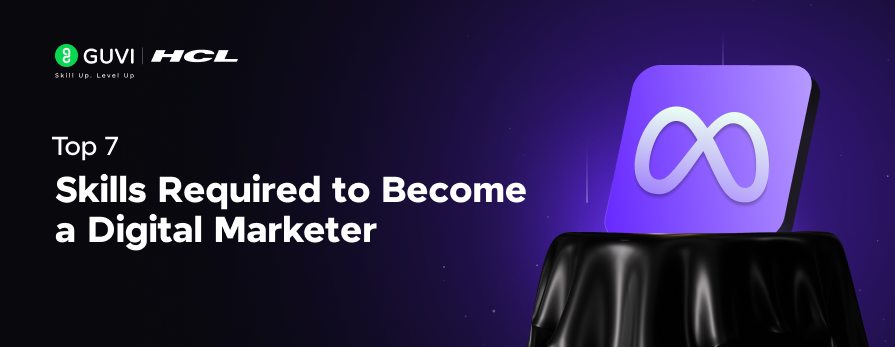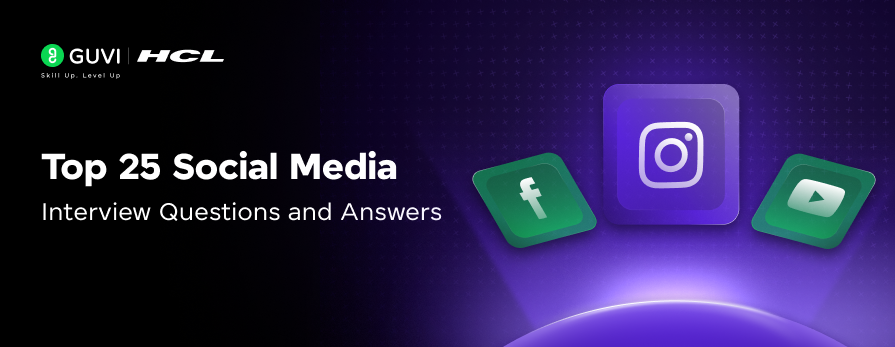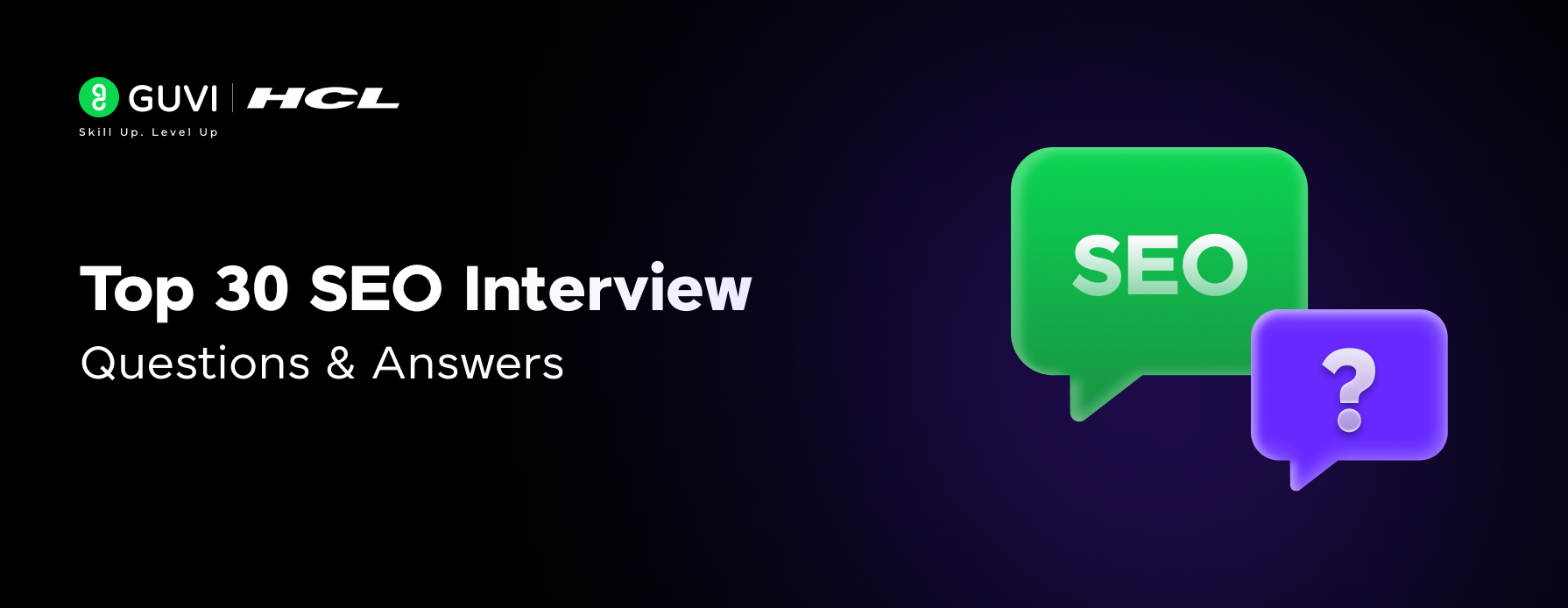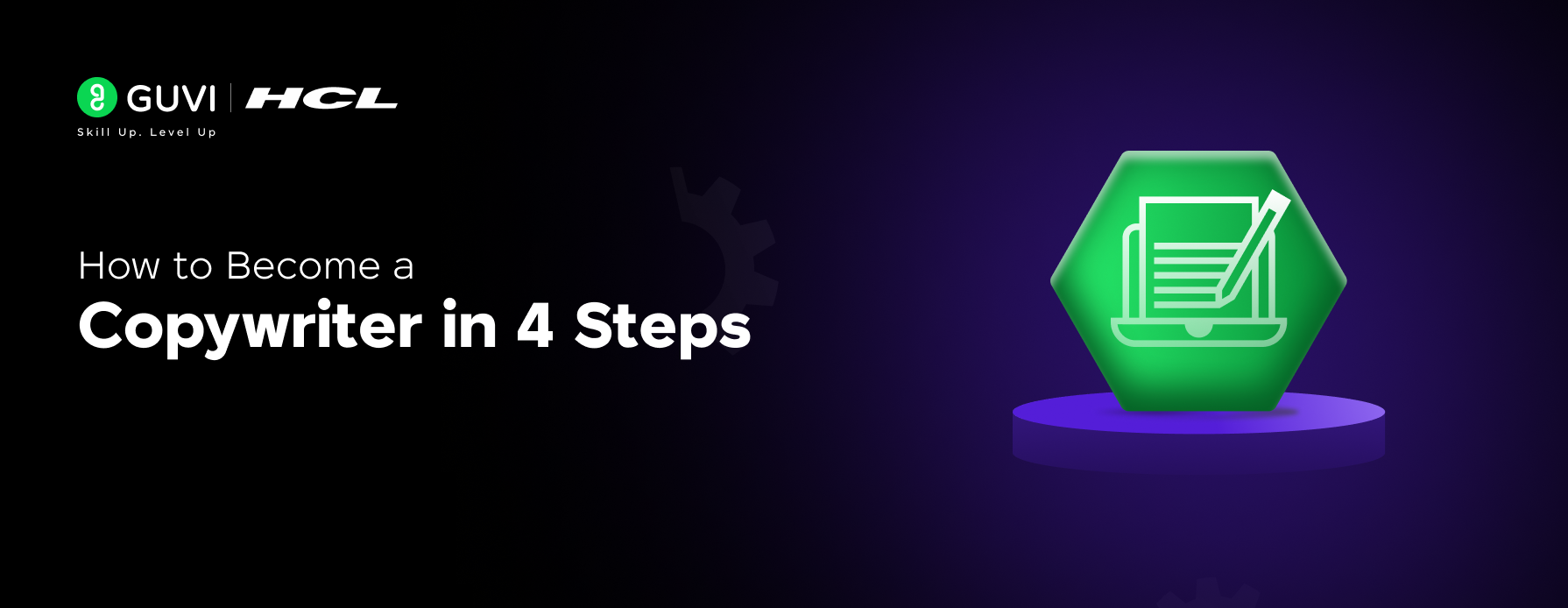![10 Best Google Analytics Alternatives [2025] 1 Post thumbnail](https://www.guvi.in/blog/wp-content/uploads/2024/05/10-Best-Google-Analytics
Alternatives-2025.webp)
10 Best Google Analytics Alternatives [2025]
Jan 30, 2025 5 Min Read 4002 Views
(Last Updated)
Google Analytics has long been the go-to tool for businesses looking to understand their online presence, track user behavior, and measure the effectiveness of their marketing strategies. It offers a robust set of features that cater to a wide range of needs, making it a staple for marketers around the globe.
Despite its popularity, Google Analytics also has a set of limitations. Some users find it overly complex, while others are concerned about data privacy and ownership. This second thought has left some users seeking more user-friendly or specialized Google Analytics alternatives and led many businesses to explore other options that suit their needs and preferences better.
Are you one of those marketers who feel overwhelmed by Google Analytics? Or perhaps you’re just curious about what else is out there?
In this blog, we’ll explore the top 10 Google Analytics alternatives, each offering unique features and benefits that might make them better for your digital marketing needs.
Table of contents
- 10 Best Google Analytics Alternatives
- Adobe Analytics
- Mixpanel
- Heap Analytics
- Clicky
- Matomo
- HubSpot Marketing and Analysis Tool
- Optimizely
- Plausible Analytics
- Kissmetrics
- Fathom Analytics
- Wrapping Up
- FAQs
- Who is Google Analytics' competitor?
- Are the Google Analytics alternatives, cost-effective?
- How is Adobe Analytics better than Google Analytics?
10 Best Google Analytics Alternatives
Here are the best data analytics tools that are alternatives to Google Analytics, that you might add to your digital marketing & analysis kit soon.
Before we move to the next part, Improve your knowledge of business analytics concepts. You can consider enrolling yourself in GUVI’s Business Analytics and Digital Marketing Course, which lets you gain practical experience by developing real-world projects and covering technologies including Power BI, Excel, SQL, Tableau, Data Visualization, etc.
Additionally, if you would like to explore Marketing Research Techniques through a Self-paced course, try GUVI’s Marketing Research Techniques certification course.
1. Adobe Analytics
Adobe Analytics is a powerful tool, that is part of the Adobe Marketing Cloud. It is particularly well-suited for large enterprises that require advanced analytics capabilities. Adobe Analytics offers robust segmentation, real-time analytics, and predictive analytics, making it a comprehensive solution for businesses with complex needs.
One of the standout features of Adobe Analytics is its integration with other Adobe products, allowing for a seamless workflow. The platform also provides detailed customer journey mapping, which can help businesses better understand how users interact with their websites. However, the advanced features and capabilities come with a steep learning curve and higher cost than Google Analytics.
Must Read: Best Way to Learn Digital Marketing in 2025
2. Mixpanel
Mixpanel is a user-centric analytics platform that focuses on tracking user interactions with web and mobile applications. Unlike Google Analytics, which is session-based, Mixpanel is event-based, allowing for more granular tracking of user behavior. This makes it an excellent choice for businesses that need to understand how users engage with their products at a detailed level.
Mixpanel offers powerful segmentation and cohort analysis features, enabling businesses to dive deep into user behavior and retention metrics. Its user-friendly interface and robust reporting capabilities make it a popular choice among product managers and growth marketers. While it may not provide the same breadth of data as Google Analytics, its depth in user behavior analysis is unmatched.
Must Read: The Role of Data Analytics in Recruitment: 8 Key Factors to Succeed!
3. Heap Analytics
Heap is a popular choice from the range of Google analytics alternatives, among non-techies. Its easy and user-friendly interface makes the process of gathering and analyzing data for websites, mobile apps, and cloud services easier. You can track user interactions with Heap without having to write code or set up complex instrumentation.
![10 Best Google Analytics Alternatives [2025] 2 Heap, one of the Google analytics alternatives](https://www.guvi.in/blog/wp-content/uploads/2024/05/heap.webp)
Heap Analytics is known for its unique approach to data collection. Unlike traditional analytics tools that require manual event tracking, Heap automatically captures all user interactions on your website or app. This makes it incredibly easy to get started and ensures that you never miss a critical data point.
Heap’s automatic data capture and its powerful analysis tools help businesses gain insights quickly with zero extensive setup or maintenance. The platform offers features like funnel analysis, cohort analysis, and retention tracking. While it may not offer the same level of customization as Google Analytics, its ease of use and comprehensive data collection make it a strong contender.
4. Clicky
Clicky is an exclusive web analytics tool that offers real-time tracking and reporting. It is known for its user-friendly interface and straightforward setup, making it an attractive option for small to medium-sized businesses. Clicky provides a range of features including heatmaps, uptime monitoring, and detailed visitor logs.
One of the standout features of Clicky is its real-time data, which allows businesses to monitor website activity as it happens. This can be particularly useful for tracking the performance of marketing campaigns and making immediate adjustments. While Clicky may not offer the same depth of analytics as Google Analytics, its real-time capabilities and ease of use make it a valuable tool.
Must Read: How Companies Use Data to Make Decisions: A Comprehensive Guide
5. Matomo
Matomo, previously known as Piwik, is an open-source web analytics platform that prioritizes data ownership and privacy. Unlike Google Analytics, Matomo allows you to host your analytics data on your server, giving you full control over your data. This is a significant advantage for businesses concerned about data privacy and compliance with regulations like GDPR.
![10 Best Google Analytics Alternatives [2025] 3 google analytics alternatives](https://www.guvi.in/blog/wp-content/uploads/2024/05/matomo.webp)
Additionally, Matomo offers a wide range of features including heatmaps, session recordings, and A/B testing. Its intuitive interface makes it easy to navigate, and the platform provides detailed reports that can be customized to suit your needs. While it may require a more technical setup compared to Google Analytics, the trade-off in data control and privacy is worth it for many users.
6. HubSpot Marketing and Analysis Tool
HubSpot offers an all-in-one marketing and analytics tool that integrates seamlessly with its CRM platform. This tool is particularly well-suited for businesses looking to align their marketing efforts with their sales and customer relationship management. HubSpot provides detailed insights into website traffic, user behavior, and campaign performance.
![10 Best Google Analytics Alternatives [2025] 4 Hubspot as google analytics alternative](https://www.guvi.in/blog/wp-content/uploads/2024/05/hubspot.webp)
One of the key features of HubSpot is its ability to provide a holistic view of the customer journey, from initial contact to conversion and beyond. The platform’s user-friendly interface and robust reporting capabilities make it easy to track and analyze key metrics. Additionally, HubSpot’s integration with its broader suite of marketing, sales, and service tools allows for a seamless workflow and improved collaboration across teams.
Also Read: Data Science vs Data Analytics | Best Career Choice in 2025
7. Optimizely
Optimizely is a complete marketing suite and a powerful digital experience optimization platform that offers robust analytics capabilities, making it one of the strong Google Analytics alternatives. One of the key strengths of Optimizely is its focus on experimentation and personalization.
![10 Best Google Analytics Alternatives [2025] 5 Optimizely as google analytics alternative](https://www.guvi.in/blog/wp-content/uploads/2024/05/optimizely.webp)
The platform allows businesses to run A/B tests, multivariate tests, and personalization campaigns to understand what works best for their audience. This enables companies to make data-driven decisions that improve user engagement and conversion rates. Optimizely’s analytics provide detailed reports on experiment performance, user behavior, and other critical metrics.
Optimizely also integrates seamlessly with other tools and platforms, allowing for a unified view of customer data and streamlined workflows. Its robust segmentation and targeting capabilities help businesses deliver personalized experiences to different user segments, enhancing overall user satisfaction and business outcomes.
Also Read: Top 10 Local SEO Strategies for Small Businesses [2025]
8. Plausible Analytics
Plausible Analytics is another privacy-focused Google Analytics alternative. It is designed to be simple and easy to use, providing essential website metrics without compromising user privacy. Plausible’s lightweight script ensures fast loading times and minimal impact on website performance.
Plausible offers a clean and intuitive dashboard that provides insights into website traffic, sources, and user behavior. It is a great choice for businesses that need basic analytics and value privacy, right from inception. While it may not offer the advanced features of Google Analytics, its simplicity and focus on privacy make it a strong competitor.
![10 Best Google Analytics Alternatives [2025] 6 Plausible analytics demo](https://www.guvi.in/blog/wp-content/uploads/2024/05/plausible.webp)
Also Read: 8 Best YouTube Channels to Learn Digital Marketing 2025
9. Kissmetrics
Kissmetrics is a behavioral analytics and engagement platform that focuses on tracking user interactions and providing insights into customer behavior. It is designed to help businesses understand how users engage with their websites and identify opportunities for improvement. Kissmetrics offers powerful segmentation and cohort analysis features, making it a favorite among product teams and marketers.
One of the standout features of Kissmetrics is its ability to track individual user journeys, providing a detailed view of how users interact with your product over time. The platform also offers integration with a wide range of other tools, making it a versatile addition to your analytics stack. While it may not offer the same comprehensive website analytics as Google Analytics, its focus on user behavior and engagement is invaluable.
10. Fathom Analytics
Fathom Analytics is a privacy-focused web analytics tool that offers straightforward tracking. It is designed for businesses that prioritize user privacy and compliance with regulations like GDPR. Fathom’s lightweight script ensures that your website’s performance is not impacted by the analytics tracking.
Despite its simplicity, Fathom provides essential insights into website traffic and user behavior. It is particularly well-suited for small businesses and bloggers who need basic analytics without compromising on privacy. While it may not offer the extensive features of Google Analytics, its focus on privacy and ease of use make it an appealing alternative.
![10 Best Google Analytics Alternatives [2025] 7 Fathom analytics as Google analytics alternative](https://www.guvi.in/blog/wp-content/uploads/2024/05/fathom.webp)
Also Read: Top 10 Strategies to Optimize PPC Ads & Boost Sales
Wrapping Up
Relying solely on Google Analytics may not be the best option for every business. Whether your priority is data privacy, user behavior insights, real-time analytics, or seamless integration with other tools, there are numerous Google Analytics alternatives available that can better meet your specific needs.
Choosing the right analytics tool can significantly impact your digital marketing efforts and overall business performance. It’s important to evaluate your specific needs, such as ease of use, data privacy, integration capabilities, and cost, before making a decision. By exploring and utilizing the Google Analytics alternatives discussed in this blog, you can gain deeper insights into your audience, optimize your marketing strategies, and drive better business outcomes.
Also Read: 10 Best Business Analytical Tools for Digital Marketing in 2025
Kickstart your career by enrolling in GUVI’s Business Analytics and Digital Marketing Course where you will master technologies including Power BI, Excel, SQL, Tableau, and Data Visualization, and build interesting real-life business-analytics projects.
Alternatively, if you want to explore Marketing Research Techniques through a Self-paced course, try GUVI’s Marketing Research Techniques certification course.
FAQs
There are more options for best Google Analytics alternatives like Fathom Analytics, Adobe Analytics, Kissmetrics, Plausible Analytics, Mix Panel, Heap, and more.
The cost-effectiveness of these alternatives can vary depending on the features and scale you need. Some tools, like Fathom Analytics and Plausible Analytics, offer affordable pricing plans for small businesses, while others, like Adobe Analytics, may be more suitable for large enterprises with higher budgets.
Adobe Analytics is often considered better than Google Analytics for large enterprises due to its advanced segmentation, real-time analytics, and predictive analytics capabilities. It provides more flexibility in handling and analyzing large datasets, which can be crucial for in-depth marketing analysis and strategic planning.

























![How to Switch from Sales to Digital Marketing: A Beginner's Guide [2025] 13 sales to digital marketing](https://www.guvi.in/blog/wp-content/uploads/2025/01/How-to-switch-your-career-from-Sales-to-Digital-Marketing.png)




Did you enjoy this article?